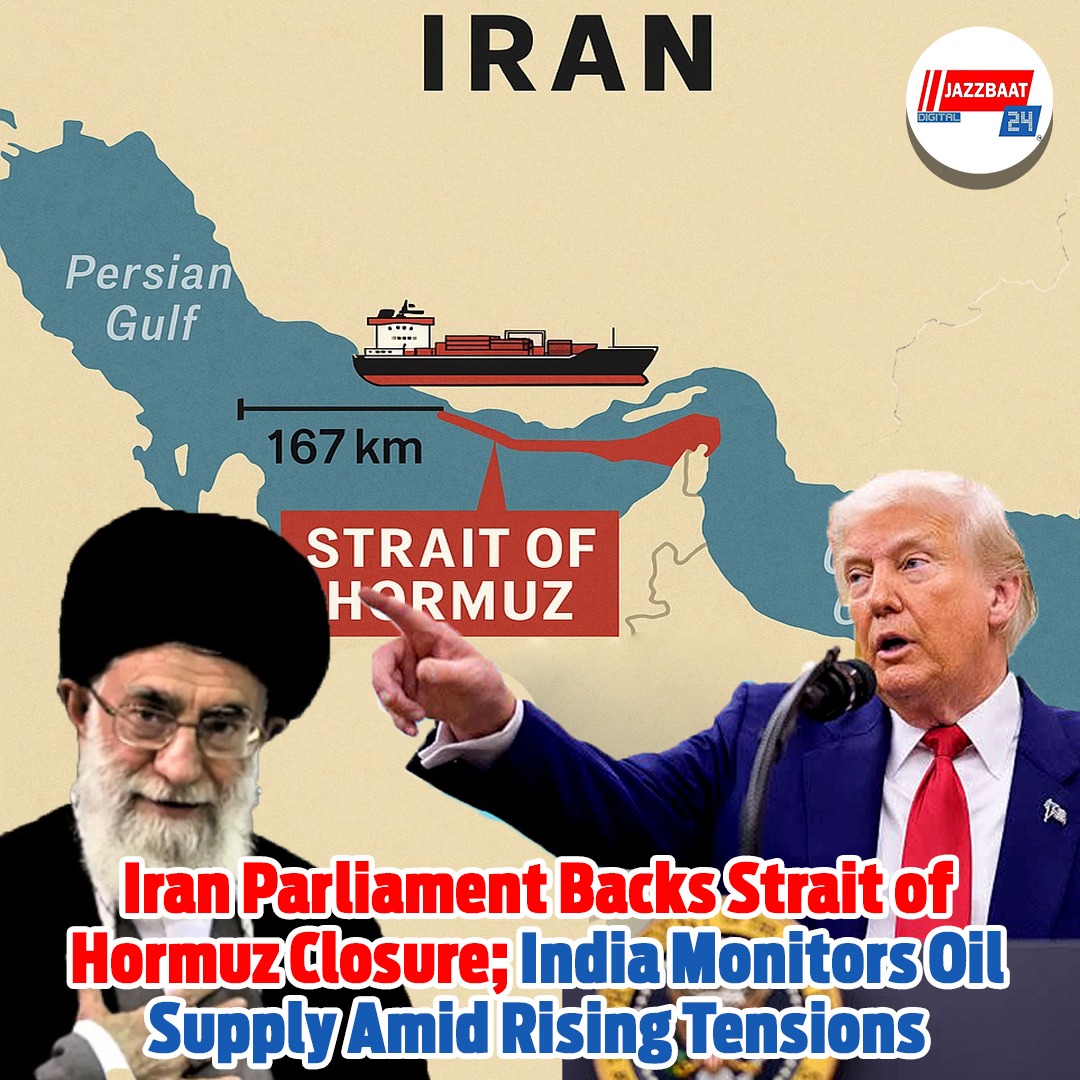
Dipanjan Mondal
23 June, 2025:
Iran’s Parliament, the Majlis, has reportedly approved the closure of the Strait of Hormuz in response to the attacks by the U.S. on Iranian nuclear facilities, the country’s state-owned media PressTV reported on Sunday (June 22, 2025), citing Esmaeil Kowsari, a member of the Majlis.
Following the U.S. strikes on three Iranian military sites, global attention has shifted to how Iran might respond. Among the various options available to Tehran, the possibility of blocking the Strait of Hormuz has emerged as a major point of discussion. Until now, most experts believed Iran was unlikely to take such a step — but Sunday’s U.S. actions appear to have altered that assessment.
While the parliament has approved, the Supreme National Security Council of Iran must take the final decision. A member of the Iranian parliament's national security commission Esmail Kosari, said, "For now, the parliament has come to the conclusion we should close the Strait of Hormuz, but the final decision in this regard is the responsibility of the Supreme National Security Council."
India is closely tracking oil trends after reports indicated Iran plans to close the Strait of Hormuz following the US attack on three nuclear sites. The Strait is a key shipping route, through which a fifth of global oil and gas supply flows.
Union Petroleum and Natural Gas Minister Hardeep Singh Puri addressed the volatility of global oil prices in light of rising tensions between Israel and Iran, particularly over concerns surrounding a possible closure of the Strait of Hormuz.
"Our oil marketing companies have supplies of several weeks and continue to receive energy supplies from several routes. We will take all necessary steps to ensure stability of supplies of fuel to our citizens," the Union Minister said in a post on X.
We have been closely monitoring the evolving geopolitical situation in the Middle East since the past two weeks,Puri said. "Under the leadership of PM Narendra Modi ji, we have diversified our supplies in the past few years and a large volume of our supplies do not come through the Strait of Hormuz now," he said.
He added, “But as I've been saying for a long time, enough oil is available in the global markets. More and more oil is coming on the global markets, particularly from the Western Hemisphere. Even traditional suppliers would be interested in keeping the supplies because they also need revenue. So hopefully the market will factor that in.”
The Strait of Hormuz is a vital maritime corridor linking the Persian Gulf to the Gulf of Oman and the Arabian Sea. Stretching about 167 km and narrowing to just 33 km at its narrowest point, it serves as a key route for global oil shipments. Around 17 million barrels of oil pass through the strait each day, representing 20 to 30 percent of the world’s total oil consumption.
India is also reliant on the Strait of Hormuz, with around 2 million barrels per day (bpd) of crude oil—out of its total imports of 5.5 million bpd—passing through this vital route. Overall, nearly 40% of India’s crude supply comes from West Asian countries like Iraq, Saudi Arabia, the United Arab Emirates, and Kuwait, all of which ship their exports to India via the Strait of Hormuz.
However, in recent years, Russia has emerged as a key supplier of crude oil to India, with imports from Moscow now outpacing the combined volumes from traditional Middle Eastern partners.
In June, Indian refiners brought in between 2 to 2.2 million barrels per day (bpd) of Russian crude—the highest level in the past two years—surpassing the approximately 2 million bpd collectively imported from Iraq, Saudi Arabia, the UAE, and Kuwait, according to preliminary trade data from Kpler.
Experts suggest that if the conflict escalates or even if there is a short-term disruption in the Strait of Hormuz, India’s reliance on Russian crude is likely to increase further. In such a scenario, the share of Russian barrels in India’s import basket is expected to rise to compensate for potential supply constraints from West Asia.